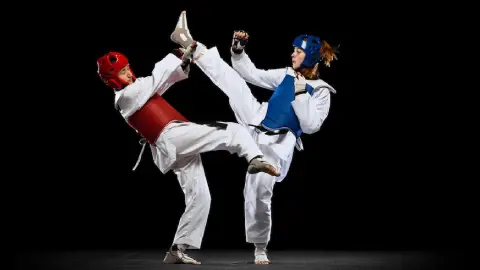The discussion over nationality in international sports is more heated and scrutinized than ever before, especially with Qatar hosting the 2022 World Cup and an increasing number of athletes wishing to change nationalities and represent different sports from different Countries.
This article compares the applicable laws on nationality and eligibility in handball, football, tennis, Olympic sports (with a special focus on taekwondo), and rugby ahead of the sevens making their debut in the Rio Olympics next summer.
It also explores the future direction of the nationality debate in sports, as well as how other countries dominate in Sports and different sports governing organizations already tackle the subject.
Handball

Handball was under the limelight for player eligibility at the World Championships in Qatar in January 2015. The hosts finished second in the competition, losing in the final to France following an unexpected run through the tournament. Only four players on the Qatari team were born in the nation, with the great majority hailing from France and Spain. Qatar, on the other hand, followed all of the regulations by lining up ‘international’ talents.
To satisfy the requirements of Article 6, the individual must have spent at least 24 months of their life in the territory of the nation for which they seek to appear.
Football

As previously discussed, Diego Costa chose to represent Spain rather than Brazil in the 2014 World Cup based on FIFA Statutes 5. According to Article 7 of the FIFA Statutes, a player can play for a new international team provided he or she has ‘lived continuously for at least five years after reaching the age of 18 on the territory of the relevant Association’ and has never played an official competitive match for another nation-state.
As a result of the Jack Grealish case, the question of nationality in football has recently been on the back pages in the United Kingdom. Grealish, who shone for Aston Villa in the second part of the 2014/2015 Premier League season, declined a call-up to the Republic of Ireland squad for the end-of-season Euro 2016 qualifying matches to be considered for a call-up to the England national team.
Tennis

While the law in football prohibits players from representing two nations in competitive matches and is only flexible if a player first represents one country in an international friendly match, the regulation in tennis is different.
The 2014 International Tennis Federation (ITF) Davis Cup Rules stated (in Clause 34) that tennis players might compete for several countries in the Davis Cup if they matched the following criteria:
- Is a citizen of that country
- possesses a valid passport from that nation
- Has resided in that nation for 24 months in a row at some point and has not represented any other country in the 36 months preceding the event.
Despite making three prior appearances for Slovenia in the same tournament, Slovenian-born player Alijaz Bedene previously saw that rule as a way into the Great Britain Davis Cup team.
Under Clause 35(d) of the 2015 standards, a National Association may seek an exemption to any of the eligibility standards by requesting approval from the Davis Cup Committee.
Olympic Games: Taekwondo And Rugby Sevens


Since before the London 2012 Olympic Games, the story surrounding taekwondo star Aaron Cook’s nationality has been evolving. Cook was the world number one in his weight category at the time of the Games, however, he was not picked for Team GB owing to a previous choice he had taken to advance his career outside of the Team GB training regimen and to pursue his own coaching and performance regime. Cook has changed his nationality to Moldova and is likely to compete in the 2016 Olympic Games in Rio de Janeiro.
This change of nationality complies with the Olympic Charter, which is quite explicit on nationality regulations. It states in Rule 41 that:
- Any competitor in the Olympic Games must be a citizen of the country represented by the NOC [National Olympic Committee].
- The IOC Executive Board shall settle all problems about the determination of the country which a contestant may represent in the Olympic Games.”
However, World Rugby has been requested to clarify eligibility rules following a shift that allowed players from Pacific nations who had previously represented Australia or New Zealand in international rugby to play for their place of origin in international competition.
Conclusion:
The issue of cross-country sports rule is likely to continue in the coming years as players strive to secure their ability to compete at the international level, which remains the summit for athletes in many disciplines.
As stated in this article, the regulations of each particular sport vary significantly, ranging from permitting a great degree of flexibility and movement in Olympic sports and handball to being fairly limited in football and presently quite stringent in tennis.







